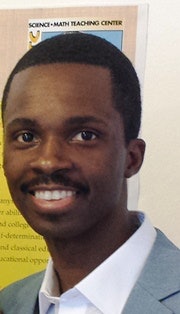 Dr. Julius Davis
Dr. Julius Davis
The president’s initiative is a worthwhile effort, but it is not the first of its kind. There are many men and organizations, HBCUs in particular, that were working with boys and young men of color across the nation long before the president announced his program. They should be applauded and supported in their work.
Some stakeholders believe HBCUs should play a lead role in the My Brother’s Keeper initiative. We agree. HBCUs have expertise in working with the populations the initiative seeks to serve. There are many HBCUs that have longstanding male initiative programs that focus on helping their male students graduate from college and/or supporting males in the community. Many HBCU advocates have criticized the president for not consulting, inviting, or even mentioning HBCUs in press conferences or major events associated with the initiative. These advocates suggest that representatives from existing HBCU mentoring programs need to be a part of this initiative if it is to truly represent the interests of Black boys and young men. We agree.
As the initiative unfolds, we strongly believe that philanthropic and mentoring organizations, policymakers, and mentors must not lose sight of what is morally right for Black boys and young men. In the wake of Mike Brown, Tamir Rice, and many other Black males who have been senselessly murdered, doing what is morally right is of the utmost importance. It should not take presidential initiatives or highly publicized, senseless murders to force people to do what is morally right for this population. People and organizations should support Black boys and young men in achieving excellence simply because it is the just and morally right thing to do.
As an HBCU administrator and faculty members, we are committed to supporting Black boys and young men. Through our institution, Bowie State University (BSU), and our personal endeavors, we are engaged in the work of supporting Black males at the community, school, and university levels. Like many other HBCUs, BSU is engaged in the work of uplifting this undervalued group through the Male Initiative (MI). Supporting Black males is not an easy undertaking for HBCUs that have not only been historically underfunded, under-resourced, but continue to experience financial challenges today.
Despite the history and current reality, HBCUs continue to help underserved Black young men and boys excel academically, socially, and professionally. To aid HBCUs in their efforts to support Black males, their history of being underfunded and deprived of resources must be taken into consideration. In order to determine HBCUs’ capacity to be of service, attention must be paid to the resources allocated to these institutions. The issue of resource allocation becomes especially important as HBCUs address the demands of new and existing policies that compound their financial challenges and impact their number one priority: students.
Many of these students are Black, financially strained, first-generation college students who have been poorly prepared for the academic rigors of college. As a result, they need a lot of support and encouragement, which they do not always get. As leaders in serving underserved populations, we are fully aware of the many pundits who question the continued need for these institutions and attack them on all fronts. They see the many students who do not graduate and assume the problem lies strictly with the institutions. This is not true.




















